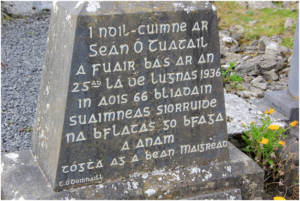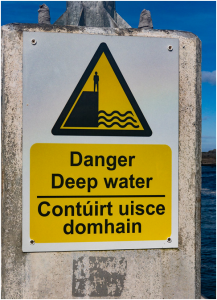For the novice, Gaelic can be difficult to learn at the outset, but it does become easier once you develop the skills, both written and oral. Evidence suggests it is not any more difficult to learn than other languages around the world.

Only a small percentage of the country’s population has the ability to use Ireland’s official language fluently in everyday life. Gaelic is compulsory in primary and secondary schools, but once students leave school, many of them have no cause to use the language in their professional or personal lives.

Gaelic is structured differently from English
The most difficult part of the language is the structure. If you compare it to English, you will see that the words are arranged differently. If you want to introduce yourself in English, you will say: “My name is John.” However, in Gaelic, the sentence is structured as follows: “John is the name of me.” That sentence will translate as “John is ainm dom.” This is similar to a lot of sentences in Gaelic.
The word order may seem strange to beginners. For example, if you translate “I am a man” (Is fear mé) and translate it back to English, the sentence would read “Am man I”. The word “fear” means “man”, but it may sound more like the English word “far” to native Irish speakers.
Many disciplines are based on the Irish language. From arts and music to the many GAA sports, you will experience the language in Ireland if you visit. It is deep-rooted and loved especially by older generations who enjoy traditional ways of life and are reluctant to lose touch with the past.
An Irish garment that keeps the chills at bay is the men’s crew neck Aran sweater. Stylish, versatile and iconic, the mens crew neck Aran sweater can be obtained from a range of retailers.
Gaelic is still spoken by many in Ireland
According to Dublin People, Gaelic is very much alive as Fingal County Council has launched a program of events for an Irish language festival Seachtain na Gaeilge.
Practice makes perfect, and that is true of Gaelic, too. Practicing the language daily and repeating words orally will help you build up your vocabulary. If there are Gaelic classes in your town, a teacher-led approach will help you make progress fast.




